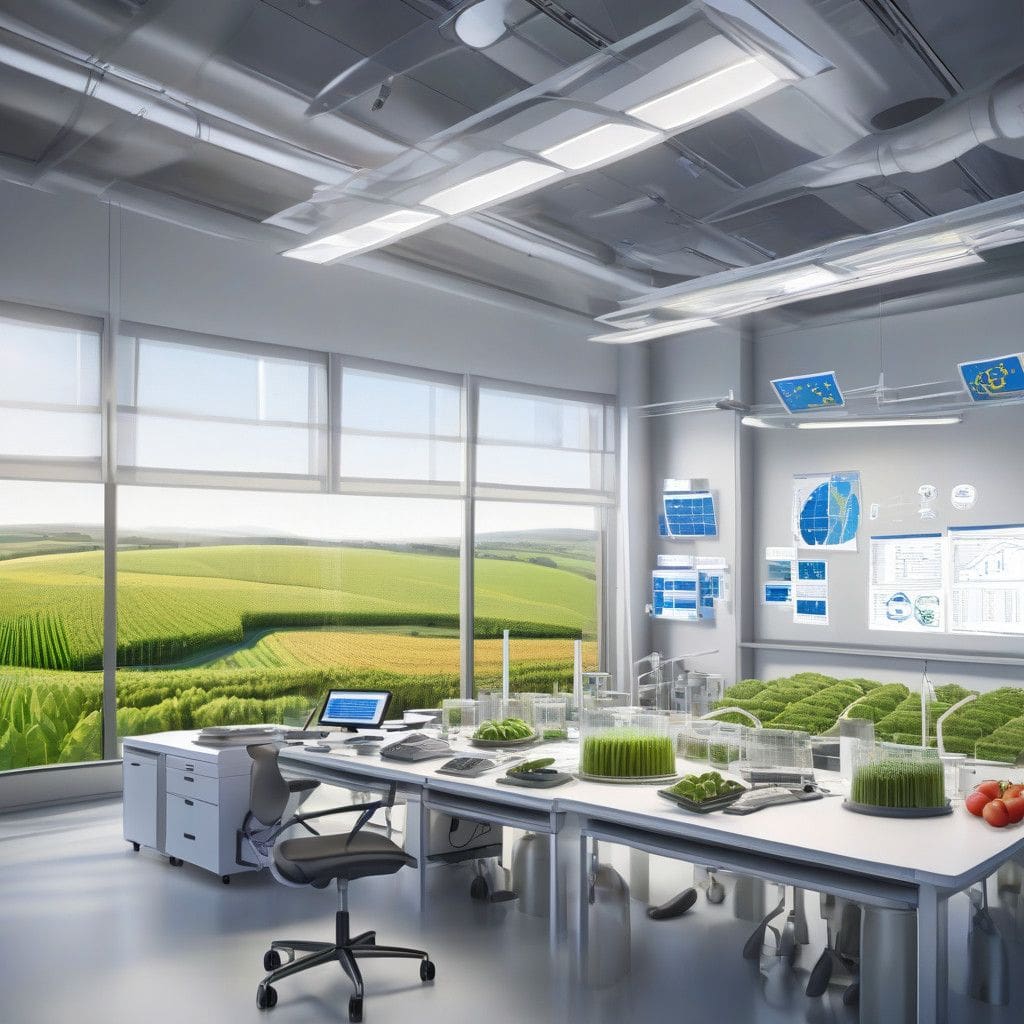In a recent event held at the European Commission Representation to Ireland offices in Dublin, stakeholders convened to highlight Ireland’s considerable contributions to European agri-food research and innovation. This gathering underscored the importance of collaborative efforts in addressing pressing challenges in the agricultural sector, particularly in relation to sustainability, climate change, and farm safety. Attended by EU officials, researchers, and industry leaders, the event showcased pioneering initiatives funded by Horizon Europe—an EU funding program designed to stimulate research and innovation.
Mairead McGuinness, EU Commissioner for Financial Services, Financial Stability, and Capital Markets Union, shed light on the critical role Ireland plays in these European projects. “Researchers from Ireland are driving essential parts of these European projects, including several agricultural initiatives led by Teagasc,” she noted. This statement reinforces Ireland’s strategic position in developing solutions for agri-food challenges that resonate across the continent.
Among the initiatives presented during the event were Climate Farm Demo, SafeHabitus, and RefreSCAR. Each project showcases how Horizon Europe funding accelerates progress in tackling issues such as emission reductions, farm sustainability, and safety. By providing detailed insights into these programs, it becomes clear how Ireland is not merely contributing but leading innovations that affect farming practices throughout Europe.
The SafeHabitus project stands out as a critical initiative mobilizing 19 partner organizations from across the EU. It tackles the complex landscape of farmer health and safety, addressing a stark reality: the Eurostat data suggests an average of 315 occupational deaths on farms annually, yet the true figure is believed to be at least 545. This discrepancy illuminates the urgent need for better resources focused on the health and safety conditions of farmers.
SafeHabitus aims to improve the understanding of how health challenges affect not just the laborers but also their families and rural communities. The findings from this project can lead to impactful policies and investments directed toward improving farm facilities and promoting safer farming practices. Importantly, it brings to the forefront the need for continuous support that enables farmers to improve their working conditions—a step that could significantly reduce the tragic number of fatalities.
Complementing SafeHabitus is the Climate Farm Demo initiative, which serves as a European network of pilot demo farmers spanning 28 countries. This initiative aims to facilitate the adoption of climate-smart farming practices, paving the way for a more sustainable agricultural framework. By creating connections between 1,500 Pilot Demo Farmers and their Climate Farm Advisors, the project enhances knowledge exchange and the implementation of climate adaptation and mitigation strategies.
Interactive and peer-to-peer learning are at the core of this program, aiming to engage the broader farming community through six annual demo campaigns with around 4,500 events. This hands-on approach ensures that innovative techniques do not remain confined to research papers; instead, they become practical tools for farmers needing tangible solutions to combat climate change impacts.
Lastly, the SCAR-Engage Programme was introduced as an important initiative to advance European engagement in research and innovation coordination activities. It aims to foster cooperation among member states and the European Commission, particularly focusing on information sharing regarding research priorities across Europe. The SCAR efforts cover the essential sectors of agriculture, food systems, fisheries, forestry, and the wider bioeconomy.
The implications of these initiatives are profound. By enhancing collaboration among EU countries, SCAR-Engage helps direct investments that can lead to groundbreaking developments in various agricultural sectors. This coordinated effort not only promotes innovation but also ensures that Europe can effectively address the multifaceted challenges posed by climate change and food security.
In conclusion, Ireland’s contributions to European agri-food research and innovation are invaluable. Through initiatives like SafeHabitus, Climate Farm Demo, and the SCAR-Engage Programme, the country is leading the charge in developing sustainable farming practices, improving farmer safety, and advancing cooperative research efforts. As these projects progress, they promise to make significant strides in enhancing the agricultural framework not just in Ireland, but across Europe, showcasing the power of collaboration in achieving shared goals.












